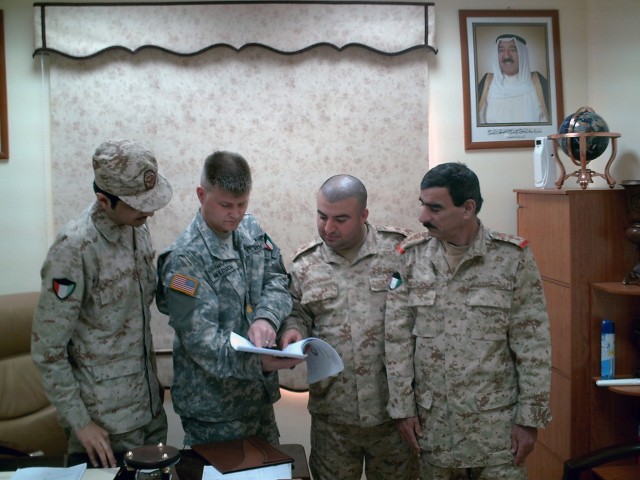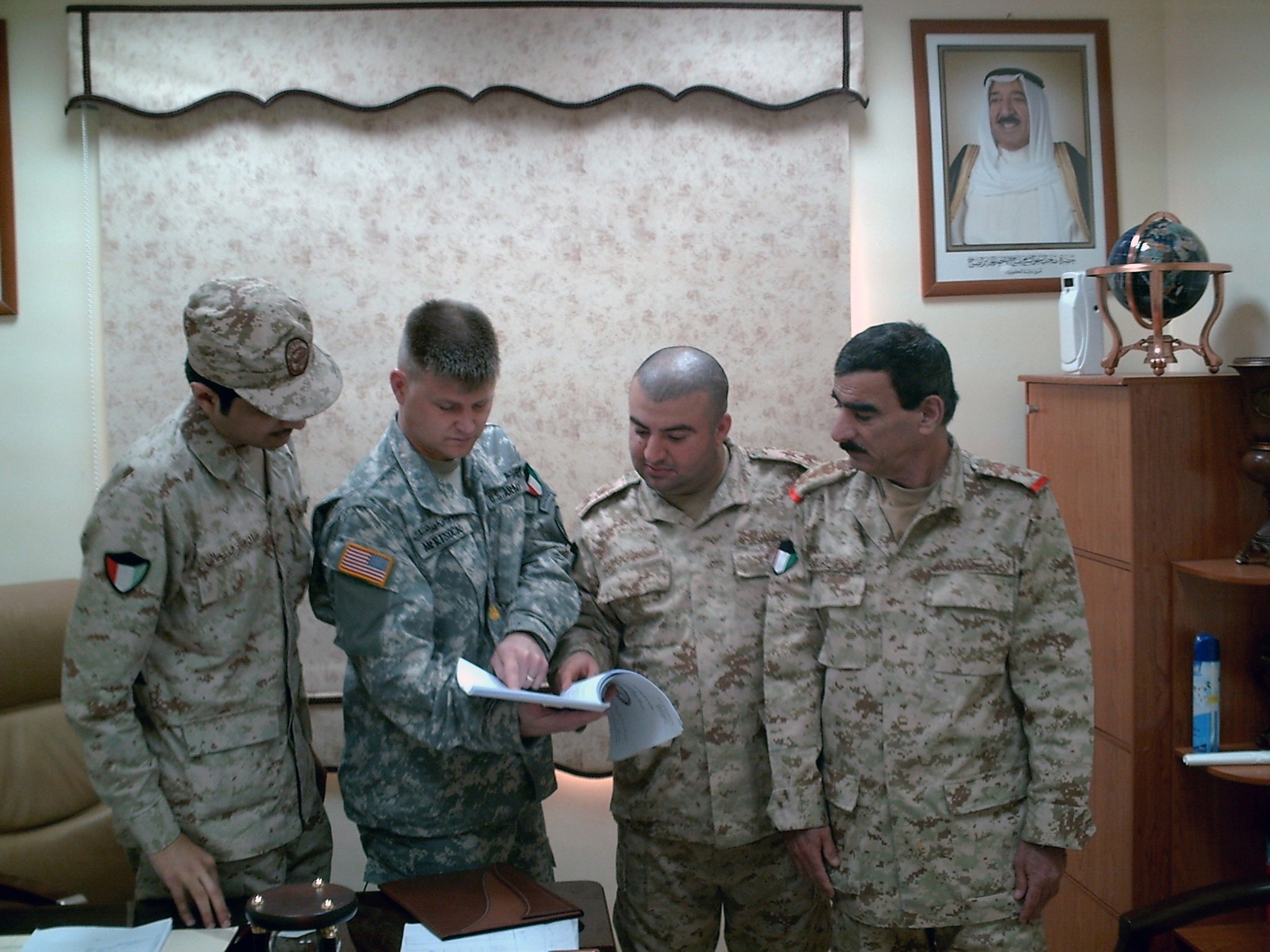KUWAIT (Army News Service, March 20, 2007) - Most deployed Soldiers wake up in a tent and go to work in a fortified compound surrounded by other Americans and a familiar culture.
When Maj. Timothy Mertsock arrives in his office every morning, he's the only American and far outside his comfort zone.
"It's different," said Mertsock, a 36-year-old chemical officer and native of Cherry Hill, N.J. "You have to first listen and build a relationship with your counterparts before you can work any actions or projects."
Working as a Third Army/U.S. Army Central liaison to the Kuwaiti army's chemical section, Mertsock routinely works with Kuwaiti officers to prepare for potential chemical, biological, radiological, nuclear and explosive incidents.
While most Soldiers start their day by catching up on events and discussing the day's priorities, Mertsock has learned to adjust to a more relaxed approach. He and his Kuwaiti counterparts share a light breakfast and tea while talking about the previous day and their families.
It's a tough challenge for this time-concerned American who is used to barging straight into work issues. "It's challenging because we are used to a suspense and a timeline," said Mertsock. "You just have to approach things differently."
Mertsock has learned how to embrace a foreign culture and do business by getting to know the men behind the rank and culture. He's also had to overcome a language barrier and learn some Arabic while the Kuwaitis also perfect their English.
Likewise, the Kuwaitis enjoy learning about America through such Army ambassadors as Mertsock, who wears a Kuwaiti crest on his left-shoulder sleeve and Kuwaiti rank beneath his American Army rank.
"We are happy to see our friend working in Kuwait, helping us to protect our countries and keep its freedom," said Col. Mohammed Yousef Shams Al-Deen, Kuwait Chemical Defense Directorate chief of operations. "He is a proactive officer who never hesitates in giving advice to improve."
As an advisor, Mertsock helps the Kuwaiti soldiers combat CBRNE dangers by deciding what equipment to purchase and by having American Soldiers teach the Kuwaiti soldiers CBRNE skills.
"The Kuwaitis have a lot of potential - they want to learn," said Mertsock. "They just need equipment to further develop."
American Soldiers routinely teach Kuwaiti soldiers how to respond to CBRNE events and help them become self-sufficient. "In the end, they can do it themselves," said Mertsock. "We're helping them develop how they're going to react."
And the Kuwaitis are also teaching Mertsock how to react to a foreign culture and succeed.
"It's a nice surprise to get this opportunity - it's just incredible to experience the culture," said Mertsock. "It's different, but in a good way."
(Sgt. Sarah Scully writes for the 40th Public Affairs Detachment.)


Social Sharing